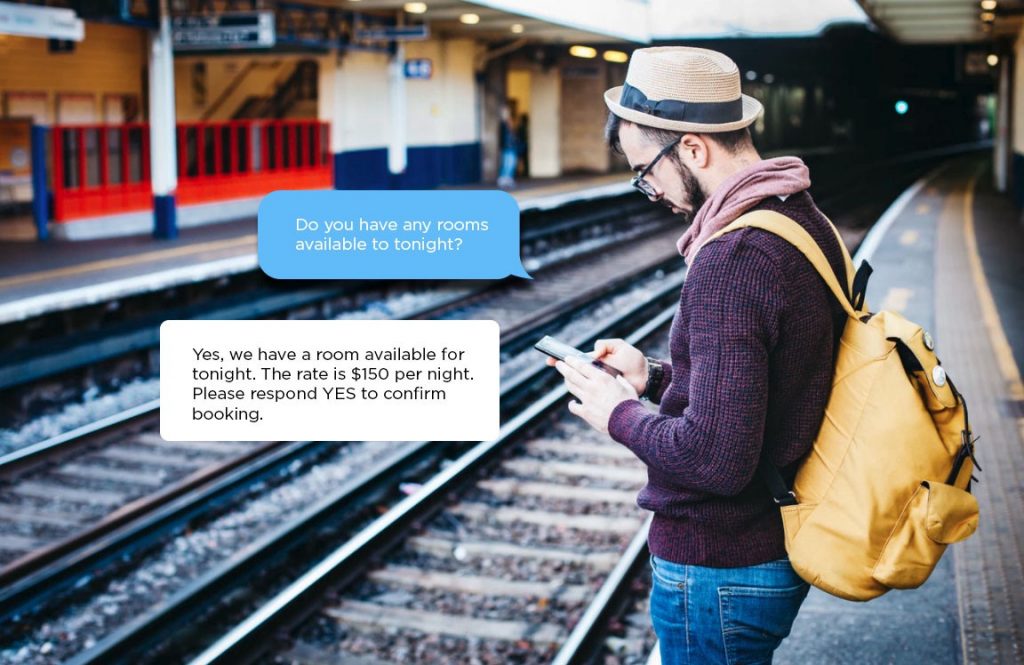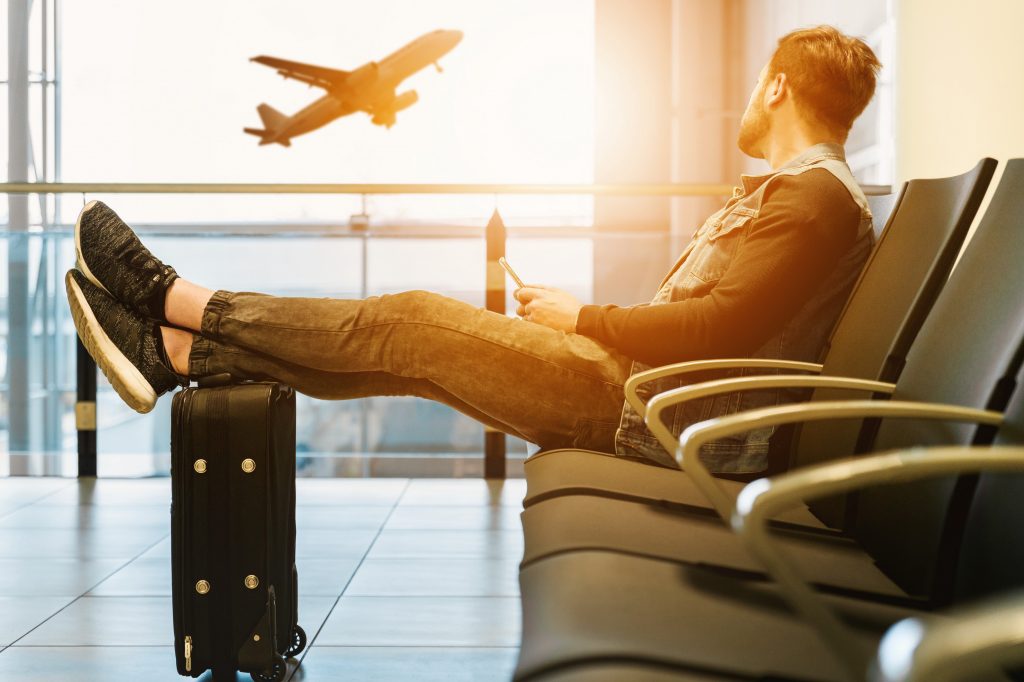Many of last year’s travel trends continue to grow in 2020, while new ones emerge. We look for authentic experiences while enjoying access to modern amenities.
Also, we will get to know the locals and visit places that are not drowning in tourists. And why not do some beauty treatments along the way?
In the following lines, we will tell you about ten new trends and changes in the travel industry.
Table of Contents
- 1. Dental and Medical Tourism
- 2. Unusual but Authentic Experiences
- 3. Changes in the Needs of Tourists
- 4. Micro-Influencers | Reach Young Target Groups
- 5. We Collect More Data on Travelers Than Ever
- 6. Sustainable Travel
- 7. More Travel Proposals Tailored to Your Preferences
- 8. Digital Experience
- 9. Voice Assistants, Chatbots and Robots as Travel Companions of the Future
- 10. Smart Rooms – Intelligent Objects That Can Interact
- In Conclusion
1. Dental and Medical Tourism

Almost 90% of travelers worldwide say their travel experience needs improvement. A personalized approach is now seen as an expectation rather than something extraordinary. Vacationers appreciate a travel experience tailored to their taste, whether it is a vacation or a business trip. Personalization has become the top priority in the travel and tourism industry.
In fact, there is hardly any sector of tourism that cannot be personalized. It starts with special offers, adapted to the customer’s preferences, ends with late check-out at no extra charge, and includes everything in between. The goal is to provide inherent added value for everyone. After all, a free late check-out is of no use to anyone who prefers to use the fitness area early in the morning.
But how about mixing the adventure of finally visiting London and getting the smile that you have always wanted? That is precisely what dental-suite.co.uk a dental practice from Beaconsfield offers to numerous travelers.
As seen from their perspective, the growing number of tourists from all around the world want to use state of the art dental services and, in that way, use the treatments unavailable back home. With the technological advancements in medical gear that happens daily.
We can only wonder how developed countries will continue to magnetize tourists to do something a bit more than just sunbathe and sip cocktails.
2. Unusual but Authentic Experiences

When choosing a holiday destination, people are inspired by the stories of those around them. Much of this environment today takes social media. You want to travel to the exotic, exciting holiday country, which you saw recently in this Instagram post. The trend is not just towards unusual destinations. Travelers want an authentic experience. They want to live and eat like the locals.
The decision, which is the next dream destination, is only made a few days before the start of the holiday. Ever dreamed of having a bachelor party in Count Dracula’s castle? Book the bachelor experience in Bucharest 3 days before the actual event and see the stunning look on your friend’s faces once they realize how unbelievable that is going to be. The examples are many, but the spontaneous decisions that make up a fantastic adventure are the core idea of this travel trend.
Due to this growing curiosity about the unknown and relatively high spontaneity, it is increasingly out of fashion to stay away from a holiday destination as a regular guest. The focus of the marketing strategies of tour providers, hosts, and organizers should, therefore, be on winning new customers.
As a guest and as an ambassador. During their stay, they have to be thrilled with additional offers, active or discovery tours. The likelihood that they will return as satisfied guests is not always 100%. Still, ideally, they will appear as ambassadors for this destination during their stay if they share their experiences and emotions on this extraordinary holiday destination on social media.
3. Changes in the Needs of Tourists

The motivations and needs of travelers are continually changing and evolving due to different trends and fashions of each society.
Transformative journey – The client has generally become more experiential than material. Many tourists see travel as a medium to have rewarding experiences of self-reflection, learning, and personal development.
Need for disconnection – Tourists seek exotic and authentic destinations that help them disconnect from frantic life. And offer activities that reconnect with themselves and help them in their personal development (yoga, meditation, or mindfulness).
Bleisure – Today, people who travel for work, whether for a meeting or an event, are more interested in formulas that allow them to reconcile their professional and personal life. Therefore, they try to include some vacation days when they travel for work.
Security – Security is becoming one of the most important values when traveling. Threats such as crime and political violence, terrorism, natural disasters, and the protection of personal data of the traveler are taken into account. That is why having the best anti-theft backpack to protect your stuff while on the go can be the smartest thing before going into the unknown.
4. Micro-Influencers | Reach Young Target Groups

The days of colorful travel catalogs with “3-star wellness promises” have long been a thing of the past. Younger target groups do not leaf through brochures, they want to be inspired – instantly wherever they are. “Wanderlust” has become the leitmotif of many digital natives. Passion and spirit of adventure are the engines of this new generation of travel.
Driven by a large, active community on social networks like Instagram, “like-minded people” land at the world’s tourist destinations or discover new places that still seem romantic and untouched. You want to see and feel what friends appreciate and love.
So-called micro-influencers, therefore, play an essential role. It is not the number of followers that is important, but the qualitative reach and authenticity within a relevant community. Visual beauty, combined with a personal address, arouses emotions and culminate in wishes and dreams.
In this sense: #neverstopexploring and #discoverearth – start a campaign together with micro-influencers that really motivate potential visitors.
5. We Collect More Data on Travelers Than Ever

“We have to reach our target groups better!” – A sentence that is prayed up and down in almost every strategy meeting. An embarrassing moment of silence follows seamlessly. Because no one really knows how to reach these target groups.
It often fails because of the knowledge with whom you actually do it has to do. The digital space is ideally suited to closing these knowledge gaps. Every user leaves – consciously or unconsciously – traces of their usage behavior, preferences, and desires. He shares his fears and problems with other interlocutors on the net, gives feedback, and looks forward to answers to his questions.
With the help of social listening, these conversations are no longer hidden in the virtual world but are tracked down and structured in real-time. In this way, trends can be identified and observed, and useful packages of measures can be put together based on this data.
Especially in a complex area such as the tourism industry. Feedback on service satisfaction ends up in a clear dashboard or as an alert in the email inbox.
6. Sustainable Travel

Sustainability is the megatrend and will remain so for the foreseeable future. The success factor for environmentally friendly tourism is credibility. Simply introducing eco-labels or using the term organic is not enough to convince travelers. On the contrary, too much emphasis on the term “sustainability” in communication actually has the opposite effect.
Many travelers still believe that sustainable, ecologically fair offers are more expensive. Actions and proposals have to speak for themselves. Eco tours, which bring the traveler closer to extraordinary experiences in harmony with nature, provide them with inside information and ideally support part of the proceeds with an environmental protection project, are among the most popular active offers.
And transparency scores: Sustainability plays a vital role in the furnishing of the accommodation, for example, in the choice of building material or the use of resources such as water and electricity.
Guests can find out about it.
And bring organic products from the region to the table, explain their origin, or even experience them in a tour offer. The environment and the guest will thank them.
7. More Travel Proposals Tailored to Your Preferences

Today, most trips are individual – planning and booking according to your own wishes, your personal arrival, tours on your own, different meal requests and extras, etc. Of course, the offers must also be designed individually and flexibly. So far this is nothing new. “Tailored to the person” means above all personal.
For tourism marketing, some essential data from the entire customer journey are available to address potential guests personally with individual content. It starts with the name, goes beyond personal interests, and ends with room preferences. In concrete terms, this means the following two things in tourism marketing:
- Personalized and dynamic ads (e.g., on Facebook) bring more engagement and results.
- Long-term customer care builds trust and leads to recommendations and multiple visits.
8. Digital Experience

Today travelers no longer have to rely on intermediaries to book a trip. The relevant data and functions are available freely and above all, comfortably via Google, booking.com, Tripadvisor, and other platforms.
The problem here is more the flood of information and the bias to a destination’s top attractions.
Although the presentation on these platforms is highly standardized, there is still some leeway here. Due to exceptional quality, enormous scope, and consistency of the data, destinations on these platforms can stand out from others.
Apart from this, other flagships can also be placed digitally.
The keywords here are AR (Augmented Reality) and VR (Virtual Reality) – interactive city guides, DIY tours, 360 ° content, virtual tours, etc.
9. Voice Assistants, Chatbots and Robots as Travel Companions of the Future

The human voice is the best and most effective means of communication, and people today want more comfort, especially when it comes to their vacation. This is the main reason why more and more hoteliers are introducing voice-activated devices.
With voice commands, the hotel room settings can be adapted to the individual needs of the guest, the information provided can be kept up to date, and customer service can be supported.
The digital concierge in the room, so to speak.
Smart devices are indispensable travel companions for everyone today. More and more vacationers expect that all needs can be met by smartphone.
Additionally, language technology is an integral part of other technologies, such as chatbots. This technology can be used by tourism companies to offer quick response times to basic questions. Opening times, admission prices, directions, and similar standard inquiries can be answered 24/7 and within a few seconds.
10. Smart Rooms – Intelligent Objects That Can Interact

Another digital trend in the travel industry is “The Internet of Things” (IoT). The Internet of Things enables smart devices to communicate in everyday life and offers extensive options and different advantages for travel-related activities.
The variations of this technology application are diverse. At airports, special sensors can be installed on luggage so that the traveler can track the location of the luggage. Large airlines such as Lufthansa and Delta have already launched such an app for their passengers.
In a hotel, it can be a device that is connected to the lighting, heating, and air conditioning systems and can control everything according to the wishes of the visitor. IoT is also able to facilitate the check-in process by sending electronic keys to guests’ smartphones.
In Conclusion

If you want to survive in tourism in the long term, you have to be innovative, know the personal needs of your visitors, and offer individually tailored offers.
Digital innovations are creating more travel trends then we expected, and who knows what will the next decade bring.
All that can be said with certainty at the moment is that more travelers want their holidays to be more authentic and less shaped by the travel standards of yesterday.
The new decade will be, as it seems at this moment, the age of digital nomads who will want the whole world to see how their experience unfolded with every step they took.





